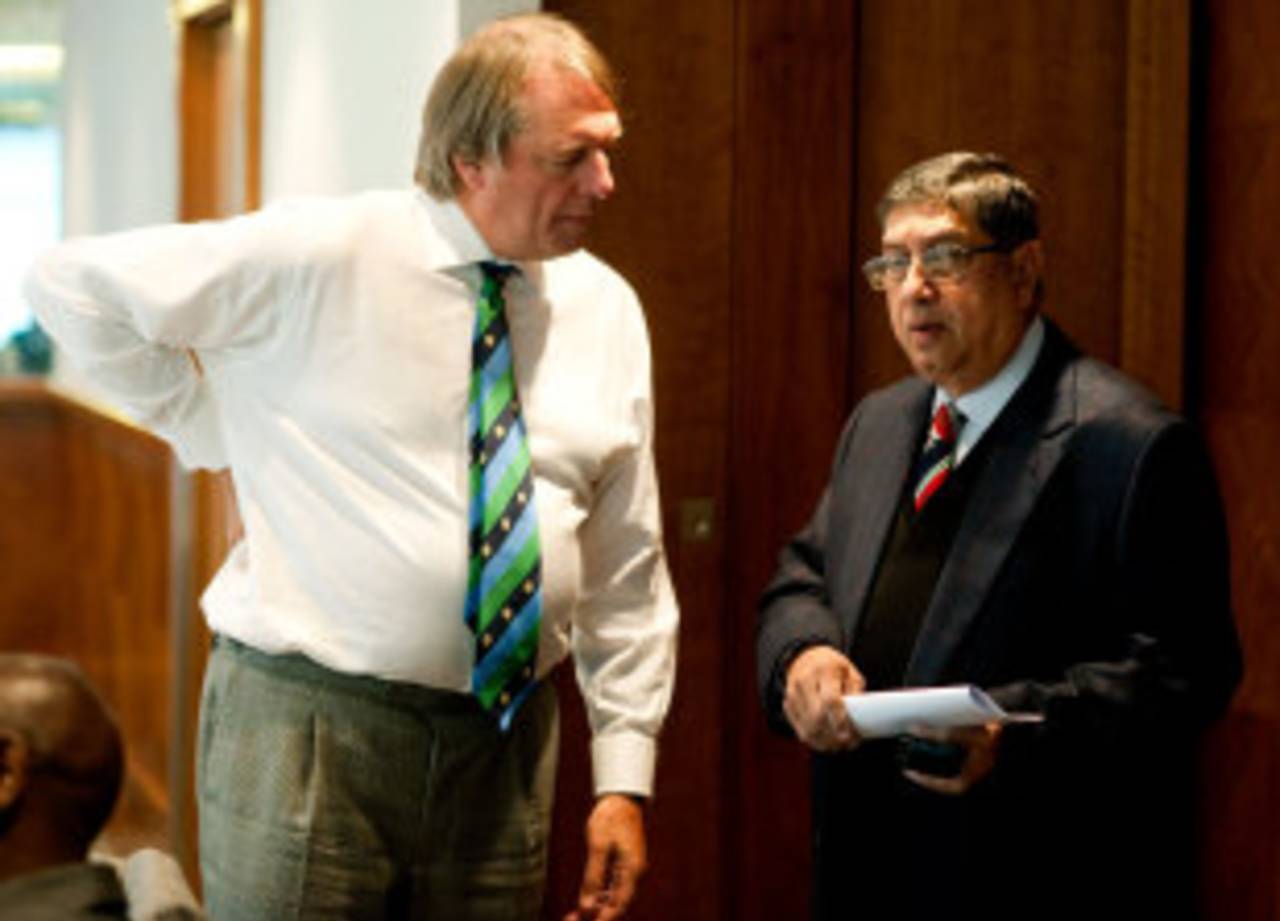PCB, CSA, SLC and BCB against proposals - Zaka Ashraf
PCB chairman Zaka Ashraf has said that the boards of Pakistan, South Africa, Sri Lanka and Bangladesh are in opposition to the revamp of administrative and financial structures of the ICC
Sharda Ugra
28-Jan-2014

The Big Three might have to wait for a decision on the position paper • Getty Images
PCB chairman Zaka Ashraf has said that the boards of Pakistan, South Africa, Sri Lanka and Bangladesh are in opposition to the revamp of administrative and financial structures of the ICC, at the governing body's executive board meeting that is currently on in Dubai. Before entering the meeting, Ashraf told Pakistan's ARY TV, that "Bangladesh, Pakistan, South Africa and Sri Lanka, we all have one stance. Let us see what we vote inside. We will stick to our stance."
It is now known that CSA, the PCB and SLC had formally written to the ICC, asking for a deferral of the "position paper" proposals being pushed through by the BCCI, Cricket Australia and the ECB, the three richest and most powerful cricket boards.
Zaka said he would vote for "whatever is in Pakistan's interests". "We have to see what is in our interests when we vote," he said, adding that during his discussions with the BCCI over the last two days discussions had come up about the two countries playing each other at "neutral venues".
In a late development on Monday night, the three cricket boards wrote to the ICC asking that the discussions on the proposal be deferred. While there had been disgruntlement among some of the other seven Full Member nations about the extent of the powers and financial advantages to be gained by the Big Three via the draft proposal - Cricket South Africa had openly termed the proposal "fundamentally flawed" - there had been no sign of any concerted or unified opposition to the document until the three boards wrote to the ICC. The three opposing boards were seeking more time to look through and internally discuss the radical changes being recommended in the "position paper".
It is understood that one of the three boards had originally sought a deferral as early as January 24. The BCB, while not using the word "delay" or "deferral" had formally asked for "further discussions" on the matter.
The BCCI, Cricket Australia and the ECB were expected to present, to the other Full Members, a set of re-drafted "resolutions" around their radical "position paper" at the ICC meeting in Dubai on Tuesday. The Big Three had been involved in aggressive lobbying on the sidelines for the past two days on sidelines of the ICC's Finance & Commercial Affairs committee meeting.
The request for a deferral has altered the situation with regards to the number of countries that are backing the Big Three's new plan for world cricket: while most changes in the executive board require a minimum of seven boards to be in agreement, significant constitutional changes - which the proposals are recommending in executive and financial matters - require eight votes.
There is also possibility that the draft "position paper" could be treated more than a routine recommendation because of its comprehensive proposals. The fact that it asks for far-reaching changes in administrative structures, financial distribution and the creation of an entirely new commercial wing of the ICC could require a "special meeting" to pass what the ICC's constitution refers to as a "special resolution".
To get a special resolution passed, eight out of the 10 Full Members will need to back the proposal according to the ICC Constitution. Article 6.12 a)3)b) in the constitution, which deals with voting on a special resolution, reads: "Resolution proposed at Conference or at a Special Meeting shall be deemed to have been carried as a Special Resolution only if not less than three-quarters of the aggregate number of votes exercisable by all the Full Members shall have been cast in favour of the Resolution, irrespective of whether or not all of the Full Members shall have actually been present in person or by proxy."
Sharda Ugra is senior editor at ESPNcricinfo